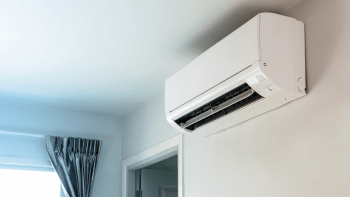Air conditioner or air cooler: Which one should you buy this summer?

Summer in Bangladesh is a scorcher. With temperatures soaring and humidity reaching uncomfortable levels, staying cool becomes a priority. As such, when it comes to choosing a cooling solution, you are faced with two main options: air conditioners (AC) and air coolers. But, which one should you go for?
Air conditioners
ACs reign supreme when it comes to raw cooling power. They utilise a refrigerant cycle to extract heat from the air, effectively creating a cool and comfortable haven. This translates to significant temperature reduction, a lifesaver in Bangladesh's hot and humid climate. Additionally, ACs maintain a set temperature, ensuring lasting relief from the heat. They even offer a dehumidification bonus, removing moisture from the air – a welcome benefit in our muggy summers.
However, the convenience of ACs comes at a cost, both in terms of initial investment and ongoing energy consumption. Purchasing and installing an AC unit can be expensive, especially for those on a tight budget. Depending on brand, size, and features, they can range from BDT 30,000 to a whopping BDT 70,000 or more. Installation requires professional help, adding to the overall cost. Moreover, running an AC continuously can significantly increase electricity bills, making it a less affordable option for many households. Their reliance on refrigerants also raises environmental concerns if not disposed of properly.
Air coolers
Air coolers, on the other hand, offer a more eco-friendly and budget-conscious approach. These 'evaporative coolers' utilise a natural cooling method. They draw in hot air, pass it through water-soaked pads, and release the cooled air back into the room. This translates to a budget-friendly option, with basic models starting at around BDT 4,000. Furthermore, air coolers are portable and easy to install, allowing for flexible cooling solutions that can be moved from room to room as needed.
Compared to air conditioners, air coolers consume considerably less electricity, leading to lower electricity bills. Air coolers are environmentally friendly, using minimal electricity and avoiding harmful refrigerants. Some models come with dust filters, offering an air purification perk, while their ability to add moisture to the air can be beneficial in dry climates.
However, despite their advantages, air coolers may not be suitable for everyone, especially in regions with high humidity levels. Unlike ACs, which reduce humidity as they cool the air, air coolers add moisture to the air, which can result in discomfort in humid conditions. They also cannot precisely control the temperature. Regular refilling of the water tank and cleaning of the cooling pads are necessary for optimal performance. Additionally, for best results, air coolers need to be positioned near windows for proper air circulation.
So, which one to go for?
Ultimately, the choice between an AC and an air cooler boils down to personal preferences, budget constraints, and specific environmental factors. For example, if you live in a very hot and humid area, an AC might be necessary for significant cooling as air coolers are more suited for drier regions. Similarly, ACs are ideal for larger rooms, while air coolers work well in smaller spaces. If precise temperature control is crucial, an AC is the better choice. However, if eco-friendliness is a priority, air coolers are the clear winner.
To help you visualise the cost difference, here is a quick price comparison, considering average price ranges of each type of product:
- Air cooler (basic): BDT 4,000 - 8,000
- Air cooler (advanced): BDT 8,000 - 15,000
- AC (window): BDT 30,000 - 40,000
- AC (split): BDT 40,000 - 60,000+
At the end of the day, the best choice between an AC and an air cooler depends on your individual needs and priorities. Consider the factors above and choose the option that best suits your climate, budget, and desired cooling level. However, for a truly informed decision, we recommend you visit electronics stores and compare different models in person.

 For all latest news, follow The Daily Star's Google News channel.
For all latest news, follow The Daily Star's Google News channel. 









Comments